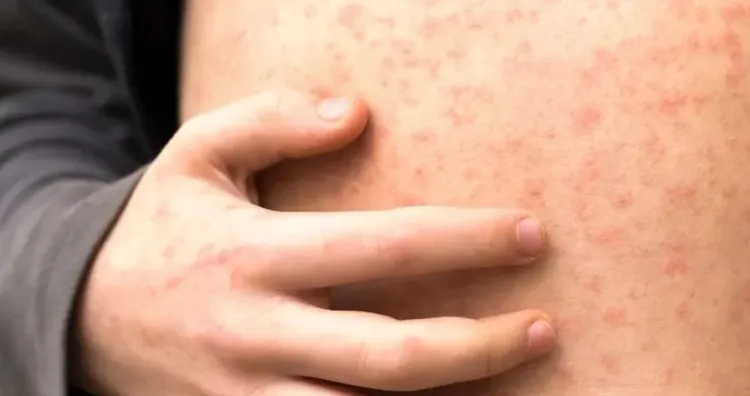Why Are US Measles Cases Rising?

Synopsis
Key Takeaways
- 1,024 cases of measles reported in the US in 2025.
- 14 outbreaks documented nationwide.
- 96% of cases involved unvaccinated individuals.
- Vaccination is the most effective prevention method.
- Measles remains a serious public health threat.
Los Angeles, May 17 (NationPress) The United States has reported 1,024 cases of measles in 2025, indicating a significant rise compared to previous years, as per the latest data from the US Centers for Disease Control and Prevention (CDC).
This year, 14 outbreaks have been documented across the nation. The CDC defines an outbreak as three or more connected cases.
Confirmed infections have emerged in 31 jurisdictions in the US, leading to 128 hospitalizations and three fatalities, according to the CDC.
About 96 percent of cases occurred in individuals who were either unvaccinated or whose vaccination status was unclear.
The current year’s figures reflect a dramatic increase from 2024, which saw only 285 cases throughout the year. This total is also the highest annual count since 2019, when 1,274 cases were reported, as noted by the Xinhua news agency.
The CDC emphasized that vaccination is the most efficient method to prevent measles. Two doses of the MMR (measles, mumps, rubella) vaccine offer robust protection against the disease.
The World Health Organization states that measles is a highly contagious viral illness transmitted through respiratory droplets and direct contact. It spreads easily when an infected person breathes, coughs, or sneezes, potentially causing severe disease and complications, including death.
Measles can impact anyone, but it is particularly prevalent among children.
The disease infects the respiratory system and subsequently spreads throughout the body. Symptoms include high fever, cough, runny nose, and a widespread rash.
Anyone who is non-immune (not vaccinated or vaccinated but lacking immunity) is susceptible to infection. Unvaccinated young children and pregnant women face the highest risk of severe complications from measles.
Being vaccinated is the best safeguard against contracting measles or transmitting it to others. The vaccine is safe and enables the body to combat the virus.
Prior to the introduction of the measles vaccine in 1963 and widespread vaccination efforts, significant epidemics occurred approximately every two to three years, resulting in around 2.6 million deaths annually.
In 2023, it is estimated that 107,500 people died from measles, primarily children under five years old, despite the availability of safe and cost-effective vaccines.
In 2023, around 74 percent of children received both doses of the measles vaccine, and about 83 percent of children worldwide received one dose by their first birthday.
To ensure immunity and prevent outbreaks, two doses of the vaccine are recommended, as not all children develop immunity from the first dose.










